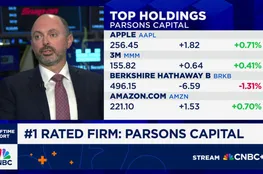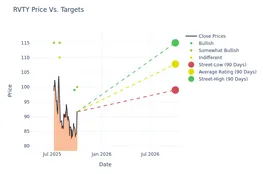AT&T and Verizon Communications stand out in the telecom sector for their high-yield dividends, grabbing the attention of investors looking to secure notable returns amid fluctuating market conditions. Both are projecting solid single-digit growth, capturing the nuances of market dynamics. Understanding their distinct strategies and growth prospects is key to determining which may be the better investment.
AT&T offers an appealing case for dividend seekers with its robust 5% yield. Despite its share price climbing 30% since January, the company's refocus on core telecom operations, distancing itself from less successful ventures like its entertainment business, enhances its appeal. The sale of its DirecTV stake for $7.6 billion marks a shift towards more sustainable growth. Investors are optimistic due to improved stability in its operations. AT&T continues to strengthen its fiber network, adding 226,000 net additions in the recent quarter, marking 19 consecutive quarters of growth over 200,000 net additions.
With plans to extend to 30 million fiber locations by next year and expect wireless service revenue to grow by approximately 3%, AT&T's free cash flow projection between $17 billion to $18 billion comfortably covers its $8.2 billion annual dividends. Trading at a forward P/E of 10, AT&T remains an attractive option for long-term investors due to its solid performance, balanced strategy, and reasonable valuation.
Verizon Communications has had a quieter year with a more modest 9% stock increase, presenting a potential rally opportunity as it maintains a high 6.6% yield. Its projected 3% growth in its wireless service aligns closely with AT&T. Moreover, Verizon's strategic aim to acquire Frontier Communications for $20 billion could extend its fiber network further, despite increasing debt. The potential for accelerated growth, coupled with dropping interest rates, offers a favorable scenario for investors even amidst increased liabilities.
Verizon's dividend consistency, with an 18-year streak of increases, reassures investors of stable returns, enhancing its attractiveness despite a modest 1.9% hike last September. With a forward P/E just below 9, Verizon not only provides a cheaper buy but also the potential for growth should its strategic expansion plans come to fruition.
In assessing which stock is preferable today, Verizon edges out slightly due to its favorable valuation, higher yield, and its proactive expansion in fiber optics that promises stronger growth trajectories. While AT&T's solid performance and strategic refocus cannot be discounted, Verizon’s mix of reliable dividends and growth potential could make it the more attractive choice in the evolving telecom landscape.
























